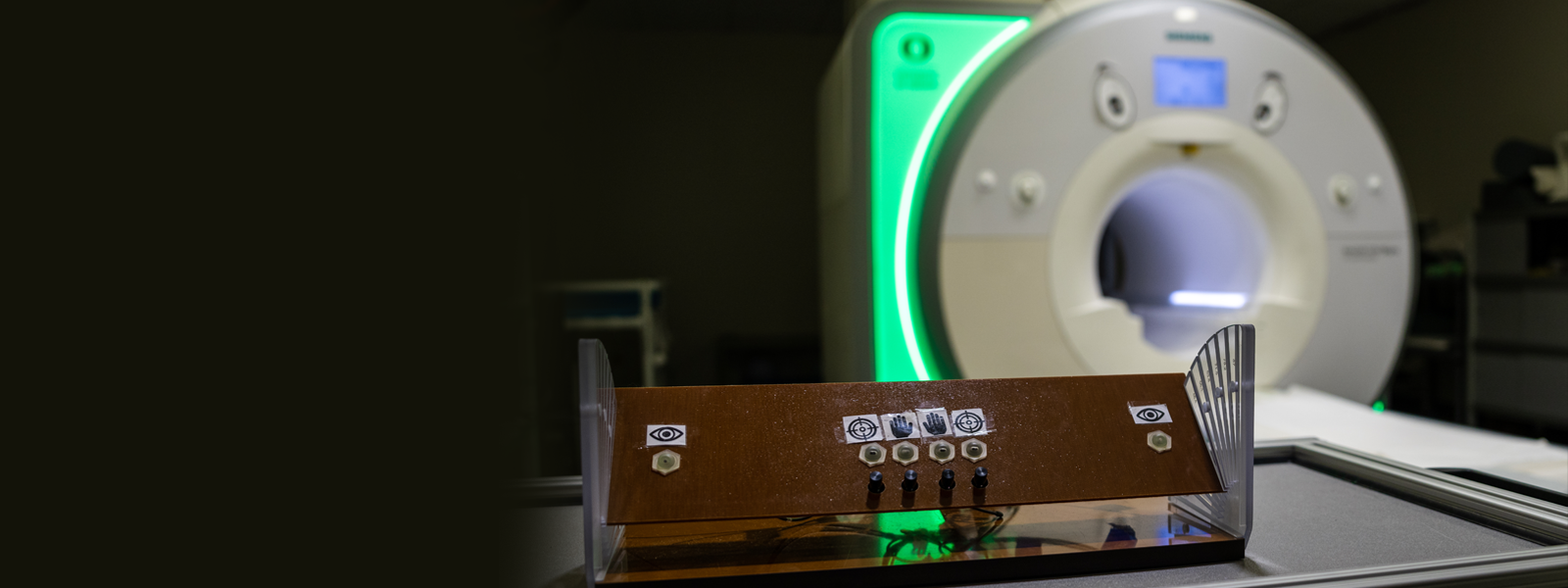Grid Item 1

Children's behavioral health and education
Creating a community of care
In 2023, pediatric health providers and the US Surgeon General declared a national emergency in child and adolescent mental health. The COVID-19 pandemic significantly exacerbated the already limited capacity for children’s mental and behavioral health services across the country and contributed to growing disparities, particularly among marginalized communities. The University of Oregon is stepping in to address this critical need by accelerating education and research to directly address the workforce shortage in children’s behavioral health and spur innovative new research to improve mental health outcomes among youth. Our programs will educate the next generation of behavioral health specialists, teachers, and counselors to enable more equitable access to treatment and to develop novel tools and assessments to facilitate effective interventions.
The UO brings exceptional strengths in fields central and complementary to children’s behavioral health and education, including psychology, teacher training, and the development of assessment tools and programs. Indeed, many of the primary educational assessment tools used around the country are developed by researchers in the College of Education. We also recently launched the first-of-its-kind bachelor’s training program for children’s behavioral health specialists, who will be trained to work in schools, health care systems, and other community settings.

Research Facilities, Centers, and Institutes

One of the UO’s flagship research endeavors, researchers in the Prevention Science Institute focus on understanding human development, preventing behavioral health problems, and implementing effective interventions in community settings.
Research strengths:
- Youth, family, and school-based programming to improve health outcomes
- Community-based participatory research
- Intervention design, assessment, and implementation
The Ballmer Institute is the most comprehensive effort ever undertaken by a university and its partners to respond to the growing crisis in children’s behavioral health and well-being. The Portland-based institute is creating and sustaining a new mental health workforce that will deliver support in schools and the community and is creating new, rigorously tested approaches to support children’s behavioral health.
Research strengths:
- Children’s mental and behavioral health
- Training and implementation of new models of behavioral health interventions
Researchers in the Center for Translational Neuroscience (CTN) at the University of Oregon translate discoveries in basic neuroscience, psychology, and related disciplines to improve well-being, promote resilience, and mitigate the effects of early adverse experiences on physical and emotional health.
Research strengths:
- Clinical and developmental science
- Health psychology
- Adolescent mental health
The HEDCO Institute specializes in evidence synthesis, or the collection of multiple research studies examining the same practice used in various contexts. This process, designed to meet educators’ rapid decision-making timelines, better validates the effectiveness of a given practice and identifies who is most likely to benefit from it.
Research strengths:
- Evidence synthesis
- Connecting research, practice, and policy
Providing access to MRI-related research for the UO and broader community, the Lewis Center for Neuroimaging. Longitudinal neural imaging studies are helping UO researchers understand the underlying mechanisms of adolescent mental health, memory formation, and brain plasticity’s role in learning math.
Training the Next Generation
The Graduate Microcredential Program is designed with working professionals in mind. The program equips educators and other youth-serving professionals with evidence-based behavioral health practices designed to promote youth behavioral health and well-being. With relevant training in emotion regulation, trauma informed support, and fostering healthy relationships, these practices can be immediately integrated into their classrooms or other settings.
The Ballmer Institute for Children’s Behavioral Health is the first and only program to offer an undergraduate degree in child behavioral health equipping you to be a part of the next generation of mental health professionals ready to meet the challenges that children and youth face today.
The Prevention Science PhD is a research-intensive doctoral program designed to train prevention scientists who can advance healthy outcomes across diverse settings.
Project LMAESTRO (Leaders in Multilingualism, Autism, and Early Childhood Supports, Training, and Research Opportunities), led by faculty in the Special Education Program, addresses the shortage and specialized training of special education leadership personnel in supporting bi/multilingual young children with disabilities, including children with autism spectrum disorders (ASD). Highly qualified scholars will be prepared to become leaders in research and practitioner preparation through culturally responsive collaboration with community stakeholders in real-world educational settings.
Project INSPIRE (Investing in New SPecial educators with Innovations to Realize Equity), led by special education program faculty, trains special education professionals in culturally responsive practices, multi-tiered systems of support, implementation science, and implementation within high-need local educational agencies and high-poverty schools. Project INSPIRE aims to prepare scholars to become faculty with the experience and expertise as applied researchers and preservice trainers to lead the field of special education, with the goal of achieving equity in outcomes for students from traditionally underrepresented groups, especially those with disabilities.

Collaborations
The UO is home to the Center on Parenting and Opioids, supported by the National Institute on Drug Abuse. Along with researchers at Oregon Health and Science University, our faculty are identifying the brain pathways and behaviors common to addiction and parenting challenges.
Together with George Washington University, Pennsylvania State University, and Washington State University, the UO is a participant in the Environmental influences on Child Health Outcomes (ECHO) Program, funded by the National Institutes of Health (NIH). The longitudinal study, which has received more than $10 million from NIH, accounts for the many factors—environmental, social, familial—that affect the mental health and wellbeing of children from the prenatal period to age 20 years.
The UO recently received a $21 million grant from the US Department of Education for its Center on Positive Behavioral Interventions and Supports, which is the longest-running center of its kind in the United States, serving more than 27,000 schools.

